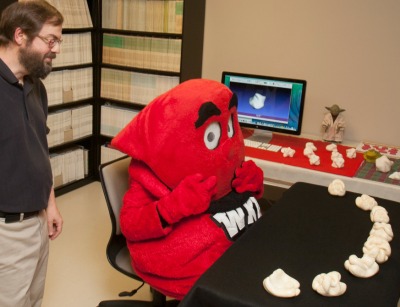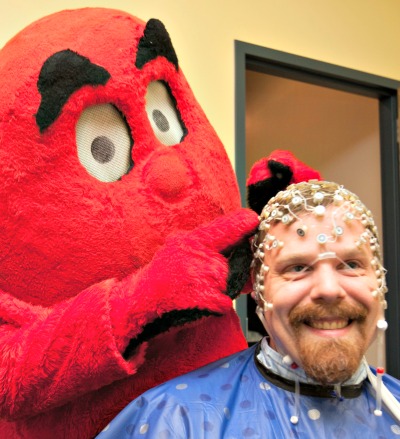Psychological Sciences Undergraduate Programs
Minor in Neuroscience
The minor in Neuroscience offers students the opportunity to study the intersection of brain and behavior in a manner that incorporates tools and perspectives from the psychological and biological sciences, and related disciplines. Some of the most important recent scientific discoveries have come from the study of neuroscience, a multidisciplinary field at the intersection of brain and behavior that incorporates tools and perspectives from molecular and cellular biology, genetics, physiology, pharmacology, chemistry and biochemistry, computer modeling, and behavioral and cognitive psychology.
 The minor in Neuroscience requires a minimum of 21 credit hours of coursework. This
includes 6 hours of required courses and an additional 15 credit hours in electives.
Students must take PSYS 100 or PSYS 160 and BIOL 120/121 prior to beginning their
coursework in the minor (some courses available for the minor may have additional
prerequisites). Students who are majoring or minoring in Psychological Science or
Biology may apply no more than six hours of major or minor course work in these areas
to the minor in Neuroscience.
The minor in Neuroscience requires a minimum of 21 credit hours of coursework. This
includes 6 hours of required courses and an additional 15 credit hours in electives.
Students must take PSYS 100 or PSYS 160 and BIOL 120/121 prior to beginning their
coursework in the minor (some courses available for the minor may have additional
prerequisites). Students who are majoring or minoring in Psychological Science or
Biology may apply no more than six hours of major or minor course work in these areas
to the minor in Neuroscience.
This minor is an excellent option for students who are (1) planning to pursue advanced study in any of several fields related to neuroscience, including psychology, biology, medicine, counseling, or social work or (2) seeking relevant training for jobs related to the assessment, rehabilitation, and treatment of brain damage, brain diseases, and addiction.
Minor Requirements:
The minor in Neuroscience requires a minimum of 21 credit hours. Note: Many of these classes are upper level courses that may have prerequisite courses not listed on this page. For example, PSYS 331, 333, 360, 362, 462 all require PSYS 210/211 as prerequisites.
The following courses (6 credits) are required for the minor.
- PSYS 360 Behavioral Neuroscience (3 credits) Note: PSYS 362 can also be used to fulfill this requirement.
- BIOL 335 Neurobiology (3 credits)
At least 15 credit hours may be selected from the following courses. Students must choose at least 1 course each from Biology and Psychological Sciences. Note: some of these courses have prerequisites beyond those required by the minor.
- PSYS 331 Psychology of Learning (3 credits) Note: PSY 331 is not equivalent to PSYS 331 and does not count towards the Neuroscience minor.
- PSYS 333 Cognitive Psychology (3 credits)
- PSYS 363 Sensory and Perceptual Systems (3 credits)
- PSYS 462 Fundamentals of Cognitive Neuroscience (3 credits)
- PSYS 463 Evolutionary Psychology (3 credits)
- PSYS 465 Psychopharmacology (3 credits)
- PSYS 482 Psychology of Sexuality (3 credits)
- BIOL 319 Introduction to Molecular and Cell Biology (3 credits)
- BIOL 324 Histology (4 credits)
- BIOL 327 Genetics (3 credits)
- BIOL 334 Animal Behavior (3 credits)
- BIOL/CHEM 446 Biochemistry (3 credits)
- BIOL 464 Endocrinology (3 credits)
- PHIL 332 Philosophy of Mind: Minds and Machines (3 credits)
 Though not required for the minor, students are strongly encouraged to obtain research
experience in topics related to neuroscience. There are several laboratories in the
Psychological Science, Biology, and Chemistry departments that offer research opportunities to undergraduate students. For more
information on research laboratories and opportunities, students should review the
websites of faculty in these departments.
Though not required for the minor, students are strongly encouraged to obtain research
experience in topics related to neuroscience. There are several laboratories in the
Psychological Science, Biology, and Chemistry departments that offer research opportunities to undergraduate students. For more
information on research laboratories and opportunities, students should review the
websites of faculty in these departments.
Other undergraduate programs:
JUMP Program (5-year B.S./M.S.)
Minor in Psychological Science

Psychological Sciences
Some of the links on this page may require additional software to view.

